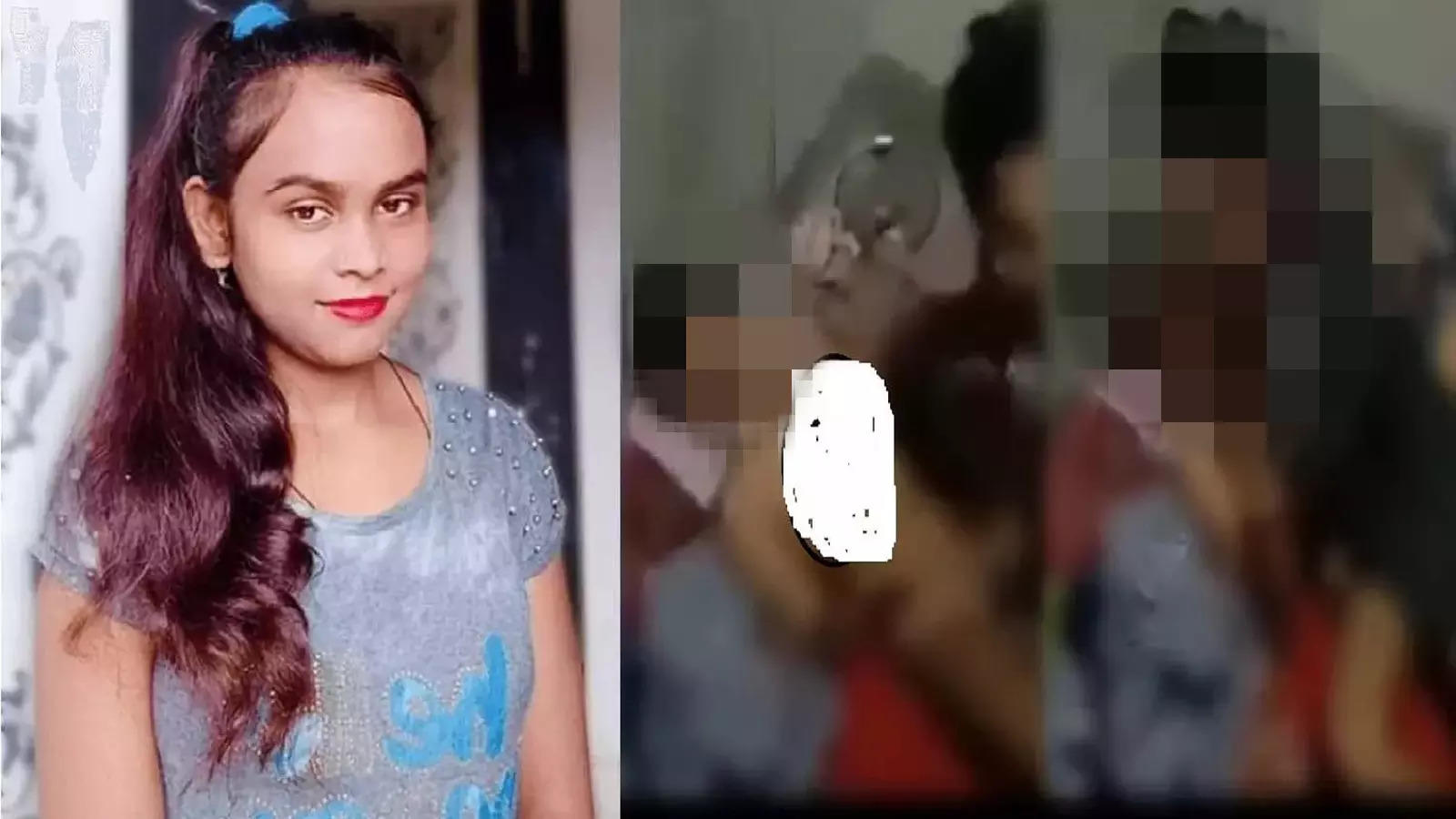Viral MMS Scandals In India: Updates & Impact
Is the internet truly a free space, or is it a breeding ground for the exploitation of privacy and the spread of malicious content? The recent surge in "mms" leaks and viral videos featuring private moments of individuals, particularly women, strongly suggests the latter, exposing a dark underbelly of the digital world where personal lives are vulnerable to public scrutiny and exploitation.
The digital age has brought unprecedented connectivity and access to information, but it has also ushered in a new era of privacy violations. The ease with which videos and images can be created, shared, and disseminated online has made it increasingly difficult to control the narrative surrounding one's personal life. This is particularly evident in the realm of "mms" leaks, where intimate videos and images are shared without consent, often with devastating consequences for those involved.
The term "mms" has become synonymous with controversy and scandal. It refers to multimedia messaging service, a technology once used for sharing photos and videos. However, in the context of these leaks, "mms" signifies the unauthorized distribution of explicit or compromising content, often leading to public shaming, cyberbullying, and severe emotional distress. The victims of these leaks are often subjected to intense scrutiny and judgment, their reputations tarnished, and their personal lives irrevocably altered.
- Movierulz Latest Movie Updates Streaming Risks What You Need To Know
- Sophie Rain Spiderman Reality Viral Buzz Lessons Learned Explained
The rise of social media platforms and video-sharing sites has amplified the impact of these leaks. Content that goes viral can reach millions of viewers within hours, making it nearly impossible to contain the damage. The speed at which these videos spread, coupled with the anonymity that the internet provides, creates a perfect storm for the exploitation of individuals' privacy and dignity.
The issue is not confined to one region or demographic. Across the globe, individuals are falling prey to these digital privacy breaches. Celebrities, social media influencers, and ordinary citizens alike have found their personal lives exposed to the public, highlighting the vulnerability of everyone in the digital age. The motivations behind these leaks vary, from malicious intent and revenge to financial gain and the desire to gain notoriety.
One of the most recent incidents involved actress Hansika Motwani. She found herself caught in a storm of speculation after an "mms" leak went viral, with the video allegedly depicting her. However, Hansika swiftly clarified that the video was not of her, attempting to distance herself from the scandal. Her clarification was crucial, but unfortunately, it did not erase the initial public reaction and the damage caused by the circulation of the false content.
- Uncut Web Series More Where To Watch In 2024 Beyond
- Akshat Gupta Biography Books Achievements Your Complete Guide
The case of Sona Dey, a social media star and YouTuber, presents another example. An alleged "mms" video of her went viral, purportedly showing her in a compromising and intimate position. The video's rapid spread triggered widespread curiosity and concern among her followers and the broader public. This incident underscores the immense power of the internet to create and disseminate content that can quickly damage reputations and personal lives.
The issue is compounded by the legal and ethical complexities involved. Often, the individuals responsible for creating and sharing these videos are difficult to identify and prosecute. Laws surrounding online privacy and content moderation vary across jurisdictions, making it challenging to take effective action. The lack of clear legal frameworks and enforcement mechanisms further emboldens those who engage in these activities.
In India, the issue has garnered significant attention, with numerous cases of "mms" leaks making headlines. Protests erupted at Chandigarh University in Mohali after objectionable videos of female students were allegedly leaked. These events ignited discussions about digital safety, privacy, and the responsibility of educational institutions to protect their students. The police have been actively involved, arresting individuals and investigating the matter. This incident reflects a broader problem within educational institutions that often lack the necessary protocols to protect the privacy of their students.
The case of Seema Haider and her husband, Sachin, further exemplifies the pervasiveness of this issue. An alleged "mms" video of the couple became a hot topic of online controversy, with viral claims suggesting their involvement in a private, intimate act. This event highlights how even in situations where public interest might be presumed to be low, the desire to share personal content can lead to significant privacy breaches.
The issue is further amplified by the activities of certain individuals who are known for their controversial content. Hareem Shah, a figure in the TikTok world, has been the subject of explicit video scandals, demonstrating how even those who court controversy can become victims of privacy violations. Similarly, Minahil Malik, another Pakistani social media star, has found herself caught in "mms" leak controversies. These incidents highlight the vulnerability of individuals who rely on social media for their livelihoods or fame.
The use of social media to spread manipulated or morphed videos is also a major concern. Anjali Arora, a social media star, took legal action against news portals and YouTube channels for sharing a morphed "mms" video of hers that went viral in August 2022. This underlines the ease with which technology can be used to create fake content, further complicating the issue of digital privacy and consent.
The rise in these types of incidents has prompted discussions about the need for stricter laws and regulations. The legal implications of creating and sharing private videos without consent are significant, yet these laws often fall short in practice. The challenge lies in balancing freedom of expression with the right to privacy, and in devising effective means of enforcement in the digital realm.
The role of social media platforms also becomes an area of discussion. These platforms are often the primary vehicles for the dissemination of leaked content, but they also have a responsibility to protect their users' privacy. The issue of content moderation is complex, requiring these platforms to strike a balance between allowing free speech and preventing the spread of harmful content. Developing effective and timely content moderation strategies is crucial in combating the proliferation of these videos.
The spread of "mms" leaks and viral videos often sparks debates about digital ethics and online safety. The public's reaction to these events varies, ranging from curiosity and voyeurism to outrage and calls for action. The discussions that arise from these events serve to highlight the evolving norms surrounding privacy and consent in the digital age.
Beyond the legal and ethical considerations, the issue has a significant social impact. The individuals involved often experience severe emotional distress, including anxiety, depression, and suicidal thoughts. The stigma associated with these leaks can lead to social isolation and discrimination. The impact can also extend to their families and friends, creating a ripple effect of pain and suffering.
The events at Chandigarh University, where the alleged leak of objectionable videos led to protests and the closure of the university, are a stark reminder of the consequences. The students' reactions reflect the collective outrage over the violation of their privacy and safety. This is a clear example of the wider impact these events have on educational institutions, social dynamics, and community trust.
The case of Sunny Mehta and Rankaj Verma, who were accused of threatening to make a woman student's private videos viral unless she filmed and shared videos of her hostel mates, points to a form of blackmail often associated with these situations. This coercion demonstrates the calculated exploitation that can occur when privacy is breached and sensitive content is used as leverage.
The ongoing issue of "mms" leaks requires a multi-faceted approach to address the complexities it presents. It necessitates not only the implementation of stricter laws and the strengthening of content moderation but also a shift in societal attitudes toward digital privacy and consent. Education and awareness campaigns that promote digital literacy and ethical online behavior are essential. Raising awareness about the potential harms of these videos and encouraging empathy and understanding can also play a crucial role in combating the problem.
While the specifics of each case may differ, the underlying problem remains the same: the exploitation of personal privacy in the digital age. The proliferation of "mms" leaks and viral videos is a symptom of a larger societal issue, reflecting a lack of respect for individual boundaries and a disregard for the potential consequences of sharing private content. It calls for a collective effort to safeguard individual rights, promote digital responsibility, and create a safer and more ethical online environment.
The trend also highlights the importance of data security, especially within educational institutions. Given the nature of the incidents, the potential for sensitive content to be leaked from these places requires thorough protective measures. Universities and schools must prioritize measures like encrypted storage, access controls, and regular cybersecurity audits to protect their student's privacy.
In the face of these ongoing challenges, it is clear that the fight for digital privacy and safety is far from over. The future of the internet depends on how we collectively address these issues, and how we prioritize human dignity and ethical behavior in the digital realm. The issue of "mms" leaks is a reminder of the profound challenges and significant responsibilities that come with living in an interconnected world.
The "Desi Mms Viral Video" phenomenon and its implications are far-reaching. It underscores the need for a collective understanding of digital ethics and a commitment to creating a more secure and respectful online environment. It demands our attention as we navigate the complexities of the digital age.
In conclusion, the increasing frequency of "mms" leaks and viral videos is a cause for deep concern. These incidents are not isolated events but symptoms of a larger problema lack of respect for personal privacy and a disregard for the potential consequences of sharing sensitive content. By strengthening legal frameworks, promoting digital literacy, and fostering a culture of empathy and responsibility, we can work toward creating a safer and more ethical online environment where individual rights are protected, and digital privacy is valued.
- Exploring Movierulzplz Your Guide To Movies More Latest News
- Unveiling Aagmal The Future Of Tech Digital Innovation

Akshara singh ka viral MMS video अक्षरा सिंह का MMS हुआ लीक?सोशल

MMS Viral Video News 2024 The Instagram Phenomenon

Post the MMS controversy, Bhojpuri singer Shilpi Raj's new video goes